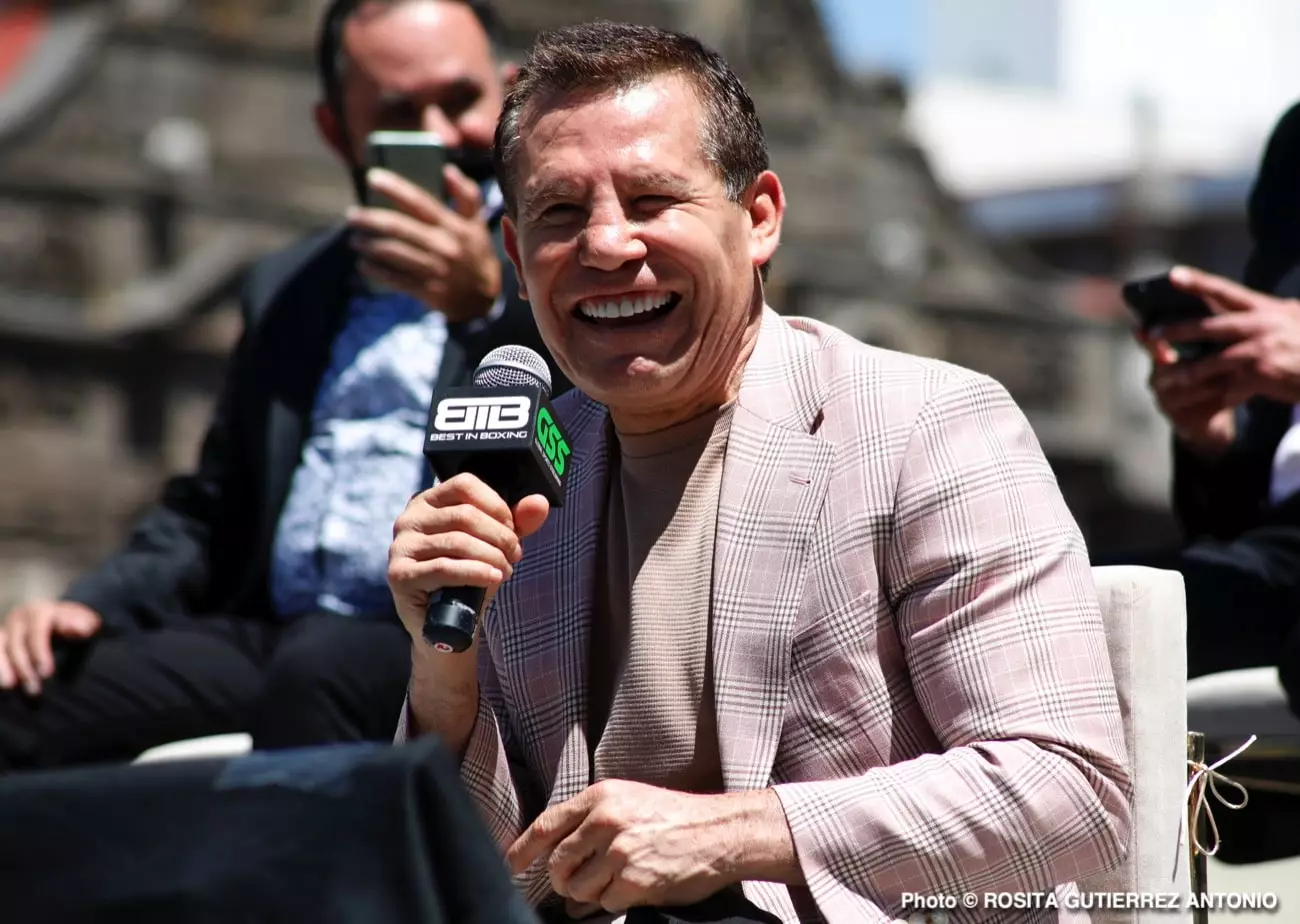Julio Cesar Chavez, a name synonymous with boxing greatness, etched his legacy into the annals of sports history exactly 40 years ago. He was only 22 years old when he clinched his first world title, marking the dawn of a career that would be celebrated for decades. Chavez’s remarkable journey in the ring began in February 1980 when he turned pro at a tender age of 17. Fast forward to this pivotal moment in history—Chavez stood tall at an impressive record of 43 wins, 0 losses, poised for battle against fellow Mexican warrior Mario Martinez at the renowned Olympic Auditorium in Los Angeles.
The fight was for the vacant WBC super-featherweight title and showcased two of Mexico’s finest in a clash that would resonate in the boxing world. Chavez, against a backdrop of unparalleled determination and skill, faced the young Martinez, who was also making waves in the boxing sphere, sporting a record of 33 wins, 1 loss, and 2 draws at just 19 years old. The tension was palpable, and as the bell rang, both fighters engaged in a breathtaking display of relentless aggression. The audience was treated to a high-octane spectacle as each boxer exchanged blows, pushing the limits of their endurance and skill.
As the fight progressed into the eighth round, Chavez began to impose his will. He unleashed a flurry of powerful combinations that visibly dismantled Martinez’s defenses. With blood streaming down Martinez’s face, the referee had no choice but to step in and halt the bout, declaring Chavez the new WBC champion at 130 pounds. This victory was not just a title—it was a statement, a testament to Chavez’s indomitable spirit and fighting prowess.
Chavez would go on to participate in an astonishing 36 world title fights, securing victories in 30 of them. His reign in boxing saw him capturing championships across multiple weight classes, including lightweight and light-welterweight. His aspirations to conquer the welterweight title would later fall short, but his legacy as a dynamic fighter remained untarnished. Known for his devastating body punches and impeccable skills inside the ring, Chavez possessed an incredible chin and an endless reservoir of stamina, making him a formidable opponent for anyone who stood across from him.
His rise through the ranks also brought him face-to-face with an array of legendary fighters. Epic showdowns against boxers like Meldrick Taylor—an iconic match that is often regarded as one of Chavez’s defining moments—set the stage for a storied career filled with significant battles. Other notable encounters included fierce clashes with Edwin Rosario, Hector Camacho, and Pernell Whitaker. Some of these fights were steeped in controversy, with scoring decisions that sparked debates that lasted long after the final bell.
Despite looking invincible for much of his career, the boxing world witnessed a shocking shift in January 1994 when Chavez faced Frankie Randall. In a stunning upset, Randall handed Chavez his first defeat after an illustrious unbeaten streak that lasted 14 years and spanned an incredible 89 fights. It was a bittersweet chapter in Chavez’s timeline, forcing fans and pundits to ponder the implications of such a loss. Could Chavez have sealed his legacy with a perfect record had he chosen to retire after the dramatic victory over Taylor?
It’s a tantalizing “what if” scenario. Chavez achieved undeniable stardom and recognition, with significant earnings flowing into his bank account as he continued to entertain audiences worldwide. Yet, the pursuit of greatness often leads athletes down unpredictable paths—enhanced earnings and accolades can sometimes come at the cost of their pristine records.
Julio Cesar Chavez’s contribution to the sport, however, transcends numbers and titles. His tenure as a leading figure in boxing, marked by style, charisma, and unmatched tenacity, leaves an indelible mark on fans and future generations. From his early rise to stardom to the trials faced later in his career, Chavez remains a compelling narrative in the sport—one of resilience, skill, and the relentless pursuit of glory.
As we celebrate four decades since that first monumental victory, one cannot overlook the rich tapestry of experiences that defined Chavez’s career. Today, he is not merely remembered for the titles won or the fights fought; rather, he stands as a symbol of what it means to embody the spirit of boxing. Through the highs and lows, Chavez’s legacy endures—an emblem of passion that ignited a nation and inspired countless aspiring athletes worldwide. Viva Julio!

